WordMiddle-aged weight gain – it is not a fallacy. Of course, not every adult gains weight with age. However, the ones that do are also more likely to experience other signs of aging, such as hair thinning or loss, mental fog, wrinkles, and fatigue. That is where the HGH benefits for
There is also no such thing as HGH diet pills or drops. Real human growth hormone is only available as a prescription injectable. The best HGH injections for weight loss are the ones prescribed by hormone specialists to reverse GH deficiency. To get the best HGH for weight loss benefits, you must first be diagnosed with adult growth hormone deficiency. AGHD is not a life-threatening condition but left untreated; it can lead to other severe health problems. Obesity, cardiovascular disease, osteoporosis, and type 2 diabetes are some of the risk factors associated with AGHD.
Why Do Adults Gain Weight When HGH Levels Decline?
 Weight gain, hair loss, decreased bone density, low libido, sagging skin, and brain fog all have something in common – AGHD. You see, growth hormone impacts the body in many ways, one of which is metabolic functions. The connection between HGH and weight loss is simple – improve how the body metabolizes food, and you will get rid of fat.
Weight gain, hair loss, decreased bone density, low libido, sagging skin, and brain fog all have something in common – AGHD. You see, growth hormone impacts the body in many ways, one of which is metabolic functions. The connection between HGH and weight loss is simple – improve how the body metabolizes food, and you will get rid of fat.
While numerous hormones play a role in metabolism, HGH is right up front, impacting lipids, proteins, and carbohydrates. To understand the role of HGH for weight loss, before and after regulating hormone levels, look at how this essential chemical helps process the food you eat:
- Lipid (fat) Metabolism: HGH stimulates lipolysis and ketogenesis, breaking down triglycerides and enhancing adipocyte oxidation. Perhaps most critically for patients attempting to shed unwanted body fat, HGH stimulates the breakdown of fats (lipolysis) to be used for energy. Therefore, for patients with an HGH deficiency, optimizing their HGH levels with hormone replacement therapy (HRT) can significantly boost weight loss results.
- Protein Metabolism: human growth hormone increases leucine protein synthesis and leucine oxidation. The direct effect of HGH on protein metabolism (anabolism) involves increasing amino acid uptake in tissues while decreasing protein oxidation. Indirectly, HGH causes insulin growth factor 1 release which strengthens muscles to increase the protein demands of the body. Growth hormone enhances the body’s absorption and utilization of amino acids, the essential building blocks of muscle tissue. The process of turning dietary protein into muscle tissue is called “protein synthesis.”
- Carbohydrate Metabolism: growth hormone plays a crucial role in maintaining blood glucose levels in the normal range. HGH suppresses the ability of insulin to stimulate glucose uptake in the peripheral tissues. Not only does HGH stimulate the liver to produce IGF-1, but it also enhances the organ’s ability to synthesize glucose. In the typical Western diet, carbohydrates most often take the form of dietary sugar and carb-loaded grains and vegetables. HGH interacts in complex ways with insulin, the peptide hormone responsible for mediating glucose (sugar) uptake into the blood. In effect, HGH regulates the insulin response.
HGH benefits for enhanced weight loss occur by enabling the metabolism to function as it should. The result is the breaking down of food into usable energy and not fat.
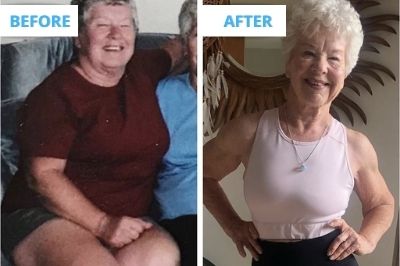
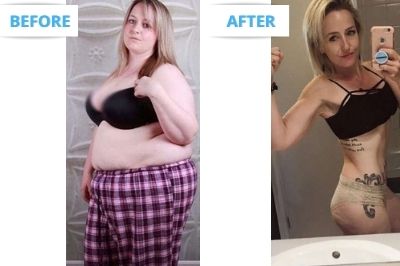
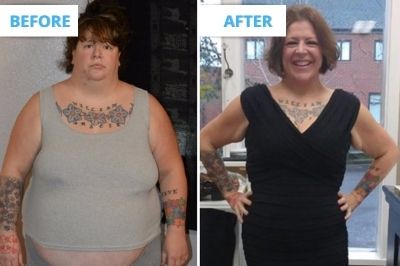
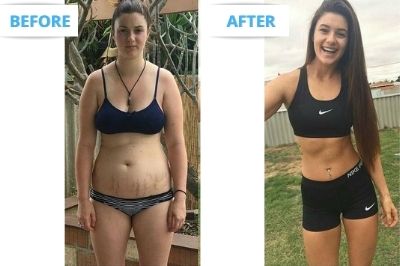
How Does HGH Target Fat Cells for Weight Loss?
The benefit of HGH for weight loss begins with the fat cells, or, more importantly, the growth hormone receptors on the fat cells. We explained how HGH stimulates the metabolism so that your body no longer converts food into stored fat. What about the fat you currently have? This is where the HGH benefits for enhanced weight loss get exciting. The growth hormone receptors on the fat cells require HGH to set off a series of enzyme reactions that break down fat. When you do not have enough growth hormone, the receptor cells do not receive their signals. Instead, they keep accumulating more fat.
When HGH binds with the growth hormone fat cell receptors, the result is improved lipolysis. The fat stored in these cells breaks down, enters the bloodstream, and is flushed from the body. The best time to take HGH for weight loss is before bed so that your body can engage in this process of lipolysis while you sleep.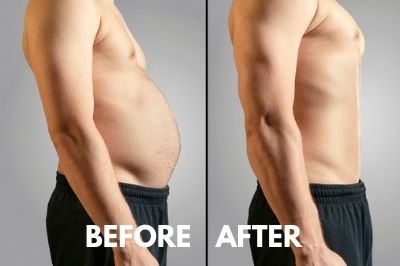
How Long Does HGH Weight Loss Take?
Your HGH for weight loss results will not happen overnight. Unlike quick weight loss programs and diets that allow for the rapid burning of fat, that is not how growth hormone works. In fact, you will not find doctors advertising HGH therapy as a diet prog
ram. Human growth hormone therapy is a treatment that restores proper HGH balance and functions. Metabolism is only one aspect of why adults require adequate HGH supplies. You will probably not notice a change in your weight until two or three months into your HGH therapy. Of course, if you change how you eat and increase exercise, you will likely see faster results.
The HGH benefits for enhanced weight loss are easily seen a few months into your treatment. By the end of six months, you will notice significant improvements in the amount of abdominal fat you have.
How Much Weight Can I Lose with HGH?
When people ask how much weight they will lose, we point out the difference between pounds and inches. Most adults lose more inches than they do pounds because while fat loss increases, so does lean muscle mass. There is a significant connection between the results of HGH for fat burn and muscle gain. Even if you did not exercise at all, your body would still develop better lean muscle tone.
If you remember back to your science classes, muscle and fat weight the same, but muscle is denser and takes up less space than fat. The more body fat you have, the larger you will look. That is why two people of the same height and weight will look significantly different if one has more muscle and the other more fat.
Another reason why you see HGH benefits for enhanced weight loss is calorie metabolism. A pound of fat burns between 2 and 3 calories a day. One pound of muscle tissue increases that number to 7 to 10 calories a day. The more fat you have, the fewer calories you will burn. So, while you may not see the numbers on the scale go down as fast as you wish, your clothing size will drop.
For more information about getting the best HGH for weight loss, please contact our hormone clinic. We offer free telephone consultations with our medical advisors, so call us today.
How Does Human Growth Hormone Work in the Adult Body?
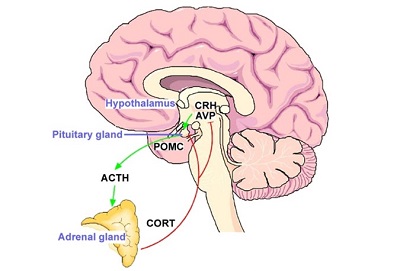
The pituitary gland produces human growth hormone (HGH), which performs a number of functions that include:
- Fostering lean muscle mass development.
- Strengthening bones.
- Tissue repair.
- Promoting healthy metabolism (including lipid metabolism – i.e, fat burning)
WordThe pituitary gland, and the HGH it produces, is part of a trifecta of glands and tissues that make up the hypothalamus-pituitary-adrenal axis (HPA axis) – a critical component of the endocrine (hormone) system that functions as a key driver of numerous biological functions. HGH, once it is dispersed in the blood, travels throughout the body to the liver, where it triggers the release of insulin-like growth factor-1(IGF-1), another important anabolic hormone.
As a pair, HGH and IGF-1 then work closely together to build healthy tissue and perform various activities, including regulating metabolism. Hypopituitarism is a serious medical condition in which the pituitary gland does not produce an adequate supply of HGH. An experienced endocrinologist can help patients correct this hormonal imbalance through therapy.
Does HGH Affect Men and Women Differently?
Contrary to popular belief, women actually produce more endogenous HGH than men. Some studies suggest, then, that in cases of patients with HGH deficiencies, women need more of the exogenous recombinant human growth hormone (somatropin) than men to achieve the same weight-loss results – in fact, up to twice as much of the medication is needed for women than for men.
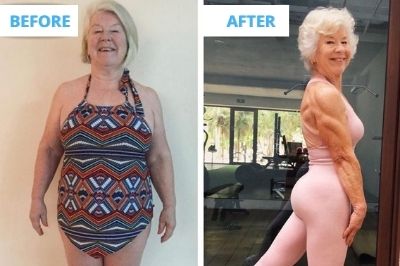

The gender differences in terms of response to HGH are due to the complex interactions of HGH with the sex hormones – specifically, with estrogen in women. Estrogen is seen to not only affect how much HGH the pituitary secretes, but the female sex hormone also modulates HGH activity in the body.
Can HGH Injections Help to Decrease Fat Mass and Increase Muscle Mass?

Yes, HGH can decrease fat and increase muscle mass. One of HGH’s many roles in the body is to promote an optimal distribution of fat and muscle, a function termed “body composition regulation.” Due to HGH’s metabolic effects described earlier, HGH both spurs the burning of fat (lipolysis) and the building of muscle through increased protein synthesis.
Natural Strategies to Achieve Higher HGH Levels and Possible Side Effects to HGH Therapy
Aside from HGH replacement therapy, patients with deficiencies also have a number of all-natural tools to achieve higher HGH levels. Individuals attempting to maximize their body’s endogenous production of HGH should:
Get more high-quality sleep. The vast majority of HGH is released during deep sleep, the most restorative stage of the circadian rhythm. It’s therefore critical to get as much shut-eye each night as possible (at least 7 hours) of high-quality, uninterrupted sleep.
- Increased water intake.
- Incorporate daily exercise. Exercise, especially high-intensity disciplines such as HIIT training, can substantially boost natural supplies of HGH.
- Eat healthier food with a concentration on amino acids. Ditch the processed junk foods like pastries and chips for high-quality whole foods with a premium placed on amino acids. Studies have shown that amino acid supplementation may moderately increase HGH release by the pituitary.
- Practice intermittent fasting. Intermittent fasting, or IF, is the daily practice of restricted eating during certain timeframes (usually 16 hours per day). During these “fasting windows,” caloric intake should be reduced to zero. The scientific evidence is clear that the practice of IF significantly amplifies HGH release.
- Control stress. Temporary bouts of acute psychological stress may actually increase HGH levels. Over time, however, chronic, uncontrolled stress wreaks havoc on the hormone system, including on pituitary function. Mitigating stress levels – through meditation, breathing techniques, or other methods – is essential for patients with compromised hormonal function.
There are a number of known (but rare) side effects to hormone replacement therapy (HRT) with HGH. These can include:
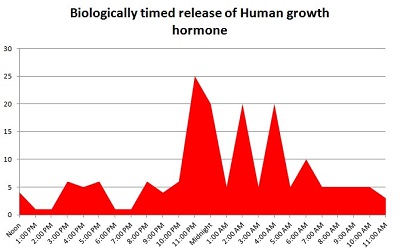
- Carpal tunnel syndrome.
- Tissue swelling (edema).
- Peripheral neuropathy.
- Elevated low-density lipoprotein (LDL) cholesterol levels.
Proper screening for underlying health conditions and ongoing monitoring by an experienced endocrinologist throughout the course of therapy can help reduce the likelihood of side effects resulting from HGH supplementation.
Frequently Asked Questions
WordHow Much HGH Is Needed to Lose Fat?
The amount of HGH that an individual patient needs depends on several factors. Therefore, providing an exact figure for the quantity of HGH that is generalizable to the whole population is difficult. One study, however, found that 0.18 IU/kg IBW/week, or, 0.18 international units for every kilogram of ideal body weight (IBW) per week, was sufficient to achieve higher rates of weight loss compared to the placebo control group.
How Does HGH Promote Weight Loss?
One of the human growth hormone’s primary roles is to optimize how the body processes, uses, and stores energy. HGH boosts the body’s processing of both carbohydrates and fat through higher rates of metabolism, meaning more fat is burned and more blood sugar is effectively processed when higher levels of HGH are present.

*It’s important to note that the waistline and other markers of improved body composition may be more relevant than a simple weigh-in on a scale. This is because greater HGH concentrations in the blood result in more lean muscle development – so, during therapy, patients will add extra weight in lean muscle while shedding fat. Therefore, it’s important to consider the ratio of muscle to fat as well as overall weight to assess progress during therapy.
How Many IUs of HGH Should I Take Per Day for Weight Loss?
To determine your ideal HGH dosage, it’s first necessary to confer with a professional, licensed endocrinologist who will take the totality of your individual circumstances into account, such as:
- Current body mass index (BMI).
- The severity of HGH deficiency.
- Weight loss goals.
However, as a rule of thumb, 0.18 international units for every kilogram of ideal body weight (IBW) per week (0.18 IU/kg IBW/week) has been shown to increase both overall fat loss and visceral fat (belly fat) loss in patients who receive therapy.
How Long Should I Take HGH for Weight Loss?

The course of HGH replacement therapy varies depending on patients’ circumstances and weight loss goals. Restoration of hormonal function takes time – especially in patients with severe imbalances. Most patients begin to see appreciable weight loss and improved body composition within two to three months of beginning therapy. With the proper lifestyle modifications to complement therapy such as increased high-intensity exercise and more high-quality sleep, weight loss results will become apparent more quickly.
Can Growth Hormone Deficiency Be Related to Obesity?
Growth hormone deficiency (GHD), because of the hormone’s important role in promoting healthy metabolism, can and does trigger obesity in patients who experience the disorder. However, the inverse is also true: obesity can degrade the function of the endocrine system as a whole and specifically limit the effective release of HGH by the pituitary. For example, high levels of insulin are linked to obesity. In turn, high insulin levels suppress HGH release.
The net effect is that obesity and GHD create a spiral effect wherein low levels of HGH drive fat accumulation and, in turn, the resulting obesity further impairs pituitary function. In these cases, serious lifestyle changes — such as an improved diet, more exercise, and more sleep – must be paired with HGH replacement therapy to restore a healthy metabolism and reverse the spiraling pattern of obesity and hormone dysfunction.
